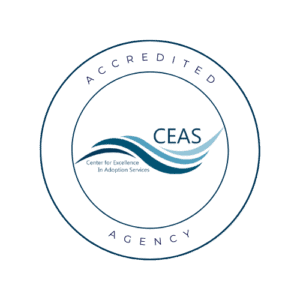Have you identified a birth relative through DNA testing and are wondering what to do next? The technology moves so quickly that even those who plan carefully are often caught off guard by the rush of emotions and the flood of decisions that need to be made. Years of fantasies, imaginings, and what-ifs now have the possibility of becoming part of your reality. This brings tremendous opportunity as well as a loss of control that worries many adoptees and their families. In consultation with a coach, families can find an ally to navigate this complex moment in birth family connection.
Here are some things you can do to feel steadier in this process.
-
Identify your unique motivation and allow for flexibility. Now that you have identified a birth relative, it can be helpful to revisit why you originally initiated the search. For some, it is purely about finding medical information or to learn about their ancestry. And for others, there is a strong desire to develop an ongoing relationship that may begin gradually with correspondence and phone calls and could culminate with in-person meetings. We often coach people to give themselves permission to slow down and take the time they need to think things through. You may become more curious and open, or you may find yourself becoming more cautious and hesitant. And, many adoptees we have worked with find that as they get deeper into the process their paths can take unpredictable turns.
-
Think carefully about how you want to exchange information. Technology and birth family contact often moves more quickly than anticipated. It is likely that together you are going to be working out ways of communicating with your biological relative. Receiving new information can be exciting and welcomed, yet we find that this can also result in feeling exposed or overwhelmed. For instance, integrating new information about your early life circumstances or newly discovered biological siblings can powerfully impact your present life and relationships. Each new piece of your story, (for example a retelling of your relinquishment), may affirm, challenge or transform your personal narrative. Setting the right pace, creating comfortable boundaries, and finding careful ways to disclose personal information are tasks that can be worked through successfully in partnership with a coach. Remember that there isn’t a right or wrong way to develop your connection. Contact may move forward quickly and easily or may require more thought, negotiation and support. Sometimes these new relationships unfold slowly over weeks, months, or even years.
-
Attend to the emotional response. The momentum and the logistics of the search itself can be all- consuming and eclipse the importance of attending to emotional outcomes. Most adoptees have conflicting feelings when they identify a birth relative that range from elation, relief, and joy to fear, panic, and sadness. All of these feelings are expected and need to be explored and understood so that you can move forward with more confidence and less anxiety. Exploring the emotional side of your search with the guidance and support of an adoption-competent professional, can help you organize and manage these powerful feelings.
-
Find un-biased support. Having a solid support system of trusted people who are readily available to you is critical. Consider the different kinds of support that you may need. For instance, who in your circle can provide guidance with objectivity and won’t be influenced by their own needs or agenda? Who is a patient, empathic listener? And, who can provide sound advice about the wide variety of ways to make and maintain contact? Many adoptees find that well-meaning friends and family have trouble understanding this deeply personal process. If you feel this way, consider joining an adoption community that can offer a network of people who have been where you are and can share their search experience. Having the support of other adoptees offers invaluable camaraderie on this journey. In addition, there are books, blogs, support groups, advocacy and social organizations, and on-line communities, each offering different ways to engage with people who can relate personally to your experience.
Spence-Chapin’s coaching and counseling services can support you to explore the emotional side of your search and figure out what to do next. Contact us at 646-539-2167 or [email protected] to schedule an initial consultation.






